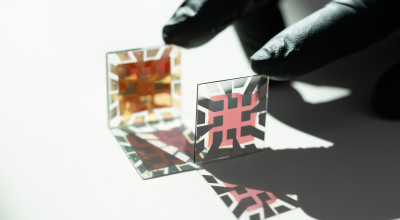
Eric Grigorian, Chief of the Architecture & Systems Development Division at the Georgia Tech Research Institute (GTRI) Applied Systems Laboratory, is featured in the November 2024 issue of IEEE Spectrum, the organ of the Institute of Electrical and Electronics Engineers (IEEE).

The article, titled “Get to Know the IEEE Board of Directors,” highlights Grigorian’s role as the 2024-2025 Director of IEEE Region 3, which includes the southern United States and Jamaica.
Grigorian, a Senior Member of IEEE, brings nearly 40 years of engineering expertise to GTRI and the larger engineering community. Since joining the Institute in 2015, he has led advanced research and development in model-based systems engineering (MBSE), modeling, and simulation.
The Architecture & Systems Development Division of ACL plays an important role in supporting the development of U.S. Army Aviation rotorcraft and uncrewed platforms, helping to shape the future of military technology.
Throughout his career, Grigorian has led cross-domain, international teams, driving innovation and delivering cutting-edge solutions that meet the evolving needs of military and commercial clients. His work in MBSE has significantly improved processes, reduced costs, and accelerated design and implementation timelines, ensuring efficient delivery of complex systems. Before joining GTRI, Grigorian held leadership positions in the defense and commercial sectors, including Director of Engineering and Manufacturing at Yulista Aviation and Vice President of Engineering and Manufacturing at AAR Integrated Technologies.
Grigorian’s technical achievements have been recognized with numerous awards. At GTRI, he received the Distinguished Performance Award in Program Development. IEEE has honored him with the James Beall SoutheastCon Recognition Award and the Outstanding Engineer of the Year Award for Region 3. Also, his alma mater, the University of Alabama in Huntsville, presented him with the 2020 Alumni of Achievement Award, noting his lasting impact on the engineering community.
Grigorian’s feature in IEEE Spectrum lets the world know what GTRI is already well aware of: he is dedicated to advancing GTRI’s missions to “serve national security” and “improve the human condition.” IEEE’s recognition of Grigorian is a testament to his decades-long commitment to engineering excellence, his influence within the IEEE community, and his dedication to fostering innovation at GTRI.
Writer: Christopher Weems
Photo Credit: Sean McNeil
GTRI Communications
Georgia Tech Research Institute
Atlanta, Georgia
The Georgia Tech Research Institute (GTRI) is the nonprofit, applied research division of the Georgia Institute of Technology (Georgia Tech). Founded in 1934 as the Engineering Experiment Station, GTRI has grown to more than 2,900 employees, supporting eight laboratories in over 20 locations around the country and performing more than $940 million of problem-solving research annually for government and industry. GTRI's renowned researchers combine science, engineering, economics, policy, and technical expertise to solve complex problems for the U.S. federal government, state, and industry.



